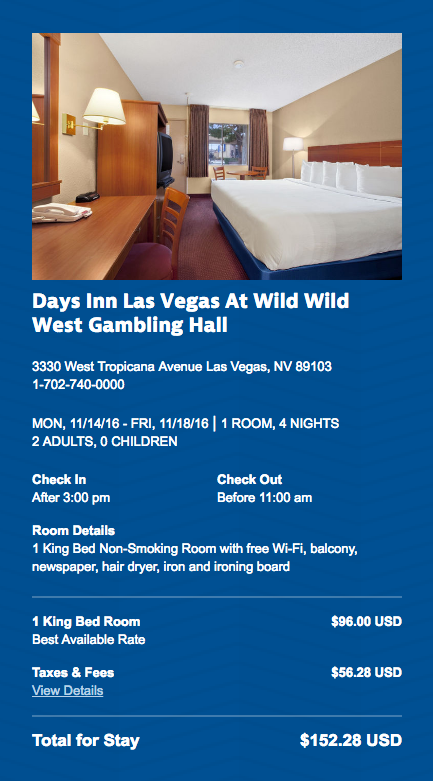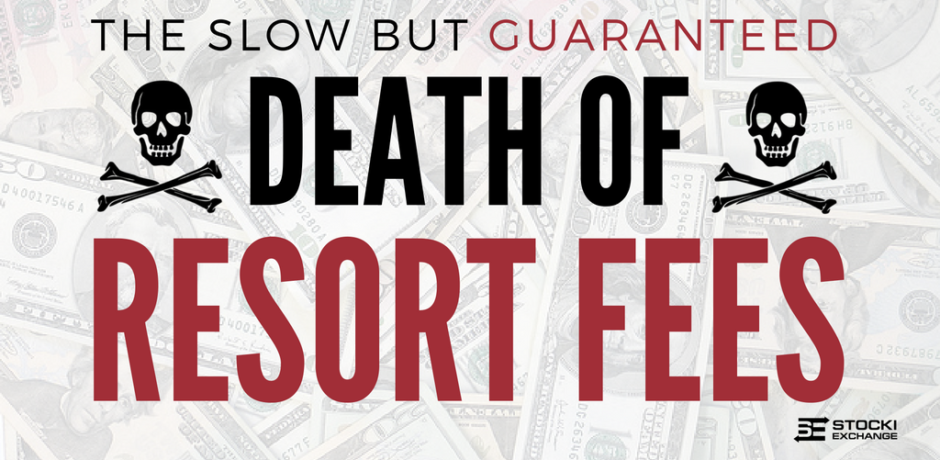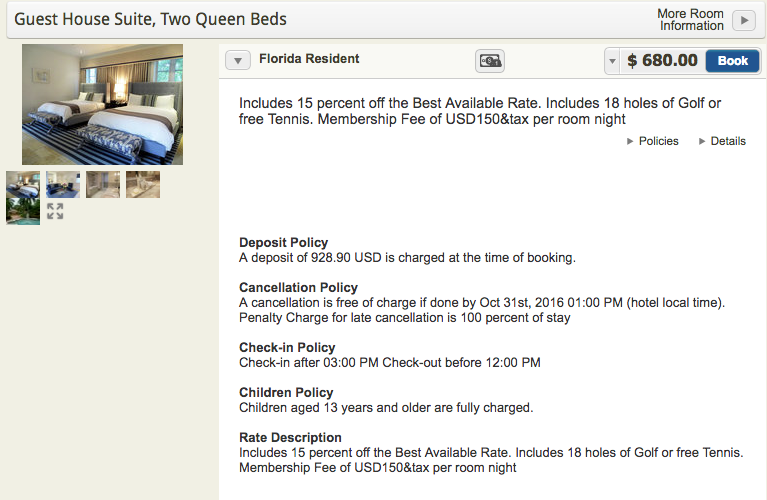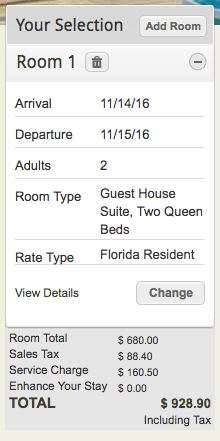Tag: John Stocki
During my travels, I’ve had many amazing hotel experiences and I’ve had some that are a complete disaster. From impossible to connect to WiFi to getting asked to pay for a room upgrade because they didn’t have any more regular rooms available, I’ve heard it all. Watch this video where I reenact some of the things that hotels do that really annoy their guests.
(more…)
Entrepreneur and Hospitality Consultant, John Stocki, has been hired as a Travel Expert and Segment Producer for a new luxury hotel TV show, Great Escapes. Stocki will be traveling the globe visiting unique and luxurious hotels to be featured on the internationally distributed show scheduled to begin airing in Fall of 2017.
Great Escapes Show Brief
Great Escapes is a 30-minute 39-episode television series created and produced by Bellum Entertainment. Based in Los Angeles, CA, Bellum Entertainment is known for producing other award-winning shows that include Corrupt Crimes, Animals Unleashed, Justice Served: Murderous Affairs, Fix It & Finish It, and many others. Together with Bellum Entertainment’s Co-Executive Producer Chris Loud and Producer Morgan Burke-Beyers, who are both Michigan natives, John will be filming and producing the remaining episodes from remote locations around the world with final editing and production being completed in Los Angeles, CA.
Great Escapes has been acquired by Sky Vision, the international distribution division of SKY, and is being distributed domestically by Bellum’s dedicated sales team. The show will be broadcast to ~75% of major city markets throughout Europe, Asia, and the United States on multiple platforms. Agreements have already been accepted for the show to broadcast on Video On Demand services including Hulu, Amazon Video, and Roku starting in 2019. A conservative estimate of global viewership is at 2 million+ and the show will be broadcast internationally for over 10 years.
John is ready to travel and expose some hotels and destinations throughout the world that are truly Great Escapes. Follow the development of the show and John’s travels via the Great Escapes Facebook Page, YouTube Channel, and Website.
Hotels Features, Sponsorships, & Product Placement Opportunities
John’s company, Stocki Exchange, a hospitality consulting firm, has also been hired to lead and manage all Sponsorship and Product Placement opportunities for the show. Companies and/or products we’re interested in featuring include luxury or unique hotels/resorts, casinos, international airlines, luxury travel products (luggage, headphones, watches, etc…), online travel agents, tour companies, Country or State Tourism Organizations, Destination Management Companies (DMC), hospitality suppliers, and alcohol producers.
Are you or do you know someone who would be interested in receiving additional information regarding sponsorship/product placement opportunities? Send an email to john@stockiexchange.com and download a PDF show brief. (Updated June 2, 2017)
About John
Born and educated in the United States, John Stocki launched his career on a global scale working in Australia, United Arab Emirates, China, and the US, as well as traveling and training in over 30 countries and 29 states throughout the US. His passion was developed in the hospitality industry where he worked with international luxury hotel brands in marketing, public relations, and eCommerce roles. He brings a straightforward approach, laced with direct personal experience, to his special and unique style which makes his company – Stocki Exchange – so distinctive.
In 2012, after returning to the US, John started the Stocki Exchange – A hospitality consulting firm for hotels & resorts, restaurants, breweries, and bars. He now acts as the company’s CEO and is also a successful Keynote Speaker for topics including travel, and hospitality sales & marketing. John is also a Consulting Partner with Mocinno International, a global hospitality management company with offices in Copenhagen, Stockholm, Palma, Dubai, London, Amsterdam, and Michigan.
He is a Contributor for The Huffington Post, Startup Grind, and Hostfully. During his travels for the filming of Great Escapes, John will be writing destination travel features, posting reviews of his experiences at hotels, as well as sharing his travels on all his social media accounts. Interested in having your brand or product included in a destination feature? Email John.
Be sure to Follow John’s travels via Social Media
Facebook: http://facebook.com/johnstocki
Twitter: http://twitter.com/j_stocki
Instagram: http://instagram.com/johnstocki
Linkedin: https://www.linkedin.com/in/johnstocki13
Medium: http://medium.com/@johnstocki
Follow the Stocki Exchange:
Facebook: http://facebook.com/stockiexchange
Twitter: http://twitter.com/stockiexchange
Instagram: http://instagram.com/stockiexchange
Website: http://stockiexchange.com
Have you noticed how those super low hotel room rates you see advertised never really seem to be what you actually pay? Taxes aside, one of the biggest contributors to this are resort fees. So much so, that The Washington Post says U.S. hotel guests paid an estimated $2.7 billion (yes, billion with a B) in resort fees in 2015!
What are Resort Fees? Where did they come from?
If you’re not a millennial, there’s a good chance you remember when resort fees didn’t exist. You probably remember being able to dispute them when they started popping up in the early to mid 90’s as well. Unfortunately, times have changed. These fees, which used to be added to your stay for the upkeep of luxury amenities at high-end resorts, are now found virtually everywhere.
Many of the perks that resort fees were designed to pay for at luxury properties such as beach clubs and tennis courts still exist. However, more and more hotels are tacking on resort fees as an easy way to generate additional revenue. During our research, many hotels said the resort fees provided for amenities such as faxing, in-room safes, local phone calls, beach and pool access, that were previously included in the room rate. In Las Vegas, for example, hotels use many of these reasons to justify fees as high as $32 a day at some properties.
Here’s a great example of one hotel advertising an extremely low rate, then tacking on a 42% resort fee.

At the opposite end of the spectrum, here’s a $680 per night island property in Miami that charges a resort fee of $150 per night (plus tax), which comes out to 23.6% of the total room charge. The property doesn’t mention that fee anywhere on their website and when called, said it covered access to all of their facilities and a golf cart for guests to use while on the island. When pressed on it over the phone, they actually called back the next day and offered to waive the resort fee, offered me the Florida resident discount rate even though I live in Michigan, and the only stipulation was that my reservation would be non-cancellable. I guess it’s not mandatory after all…
Why Do Hotels Still Charge These Fees?
The reasons why many hotels still charge a resort fee are pretty obvious:
- It’s legal…as long as they disclose the fees before you complete your reservation
- It allows hotels to deceptively lower their advertised room rates then make up the revenue by tacking on resort fees later
- Consumers continue to pay them without questioning what they’re getting in return for their money
Challenging the Status Quo
If a property really wanted to, they could offer a stay for $50 a night and charge a $100 resort fee as long as they disclose it prior to booking. Talk about a bait and switch! Cable and internet providers are the one of the only other folks out there charging their customers fees like this with minimal transparency. And, we all know how much everyone loves dealing with them. This deceptive practice has gotten so bad that the FTC is considering changing its current policy as many consumer advocate groups argue that it is unfair and deceptive.
Websites like ResortFeeChecker.com and ResortFees.com are gaining momentum because travelers are tired to being taken advantage of. In a recent study, roughly 1 in 10 travelers to Las Vegas actually changed where they planned to stay in order to avoid paying resort fees. In my opinion, hotels have three options if they want to see continued success as their guests become more discerning:
Option #1 – A La Carte Service Fees and Packages
If properties want to keep resort fees in place, they have to acknowledge that it takes unique and luxurious upgrades to justify them as well as a market willing to pay for them. If people don’t take advantage of those perks, the property should offer to waive the fees. A recent study confirmed consumer sentiment for this approach.
Option #2 – Roll the Resort Fee into the Room Rate
Hotels could drop the resort fee entirely and roll it into the room rate. Let the consumer know exactly what they’re paying for and allow them to make their own decision, with no hidden fees/charges. The same study referenced in Option #1, found that 67% of consumers preferred this type of bundled pricing. Truly savvy brands will utilize this as a marketing opportunity to explain higher room rates and differentiate themselves from competitors who still nickel and dime their customer base.
Option #3 – Do Nothing While Competitors Choose Options #1 & #2
Hoteliers that refuse to change will continue to benefit from unsuspecting, price-conscious consumers…for the short term. However, many hotels already see the changes in consumer spending habits and have updated their pricing model to mirror the options above. If this consumer behavior trend continues, businesses who are slow to respond to the change will likely see a decline in revenue until their pricing model better reflects consumer demands.
The Hard Truth
Quite frankly, hoteliers are going to need to work harder. Charging resort fees has been an easy revenue generator requiring little to no effort for too long. As consumers become more educated, brands that continue to utilize them will be risking their ability to build long-term brand loyalty, a key performance metric for the travel industry.
Sadly, unless the practice is deemed a form of deceptive advertising by the FTC, many hotels and resorts will likely stay the course as they are too tempted by the easy revenue. Even those who want to change may be too cash-flow sensitive, requiring the short-term revenue resort fees provide just to stay afloat. Additionally, properties in highly-competitive resort destinations like Las Vegas and Miami, where resort fees have been the norm for decades, will likely be the last to change as it will put them at a disadvantage price-wise in online search results. To survive, these hotels will likely continue to advertise low rates that undersell the market and focus on a volume-driven strategy, targeting the most price-conscious consumers.
Unfortunately for them, transparency is the currency businesses trade in today. The internet provides everyone with more options and information than they know what to do with. Consumers, even cost-conscious ones, are deciding they don’t want to do business with organizations who aren’t honest and upfront with them.
If you’re a consumer who has successfully challenged these charges or a hotelier who is considering changes to your fees, I would love to get in touch. Email me at John@StockiExchange.com or contact me online here.
“You” might be a restaurant guest or “you” might be a restaurant employee. There’s a solid chance “you” might also be another chef or restaurant owner. Regardless, you’re probably doing at least one thing that drives chefs everywhere up the wall. To find out exactly what drives them crazy in the kitchen, I asked two to tell all. Here’s who they are and what they had to say.
(more…)
The Department of Labor issued the long-anticipated final overtime rule May 18 and included an exempt employee threshold of $47,476—less than the proposed rule’s $50,440 but slightly more than double the old/current threshold of $23,660. The impact of the increase will escalate in coming years; the rule included a hike every three years in the minimum salary for exempt employees. The automatic increase will be based on the 40th percentile of the weekly earnings of full-time salaried workers in the lowest-wage Census region, the South. Employers must comply with the new rule by Dec. 1, 2016—a much longer time to comply than the minimum 60 days required of final rules. (more…)
Stocki Exchange Founder, John Stocki, recently joined the crew for Episode #81 of the One Thing Straight Podcast and talked about the latest marketing buzzwords. (more…)
Here’s a scenario.
You’ve thought about opening restaurants for some time now. You heard one just closed down and there is a super cheap lease available. Realtor tells you that it won’t last long as it’s a super high traffic area. It even includes all their kitchen equipment and dining room setup. BOOM. Cash in that 401k early and sign on the dotted line. You’re now a restaurant owner. But now what? (more…)
Targeting Millennials in Today’s Digital Age & How to create a killer Content Marketing Strategy! I’m excited to announce that I will be offering full-day training seminars together with the Michigan Lodging & Tourism Association as part of their Lodging Leadership Series in 2016! (more…)



















